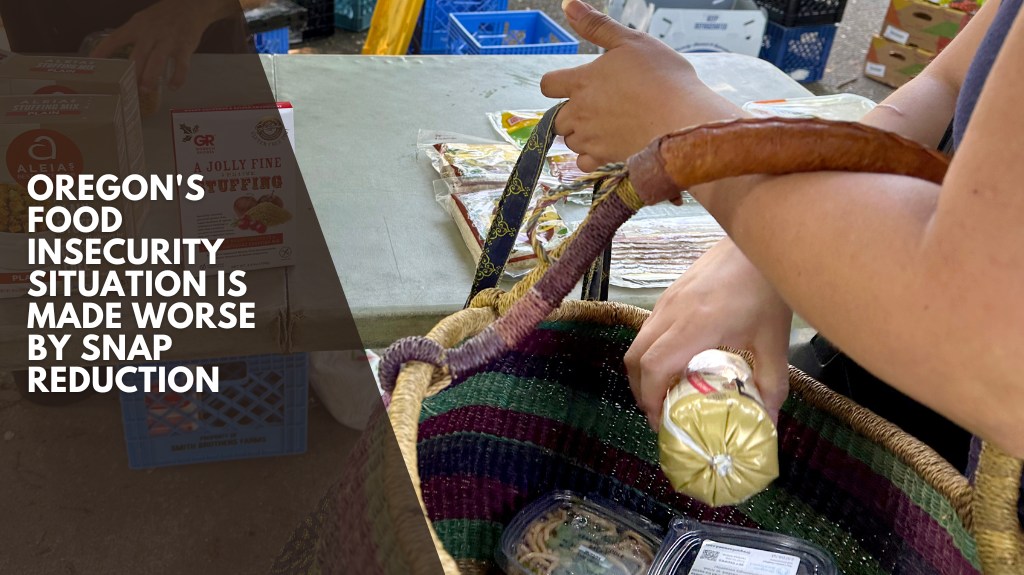Grants Pass, Oregon — Food pantries across Oregon, which are already dealing with federal funding cuts, are facing an even bigger crisis as cuts to the Supplemental Nutrition Assistance Program (SNAP) are set to take effect under the recently passed “One Big Beautiful Bill.”
This legislation, praised by Agricultural Secretary Rollins, includes provisions that will put additional strain on organizations such as the ROC Food Pantry in Grants Pass, which serves nearly 7,000 people each month.
The cuts come as states like Oregon struggle to close funding gaps, leaving food pantries as the last resort for an increasing number of food-insecure residents.
Shonna Bouteller, director of the ROC Food Pantry, discussed the serious consequences of these changes, stating that her organization has already had to discontinue its home delivery program for 150 homebound and disabled seniors due to staffing and funding shortages.
“Our patrons are going to see a double whammy on this, and a lot of them are really scared that they’re not going to be able to make it through,” Bouteller said, noting that many seniors and disabled people rely heavily on SNAP.
The pantry receives an average of 50 to 80 new applications per week, and in June alone, they ran out of food four times, forcing them to turn away hungry people, an experience Bouteller describes as “heartbreaking”.
The impending SNAP cuts, which will take effect in the fiscal year 2028, will disproportionately affect seniors and disabled people. Many of them receive insufficient benefits, such as Bouteller’s client, who receives only $27 in SNAP benefits for herself and her husband for the entire month.
With rising costs and reductions in other aid programs such as Medicaid, the demand for food pantries is expected to increase.
Bouteller emphasized the urgent need for community support, stating that businesses, organizations, and individuals must step up with financial contributions, food donations, or volunteer time to ensure that “people have to be fed” in order to have a healthy community.
ACCESS issued a statement emphasizing this year’s surge in demand:
“ACCESS’ Regional Food Bank is a vital lifeline for thousands of local residents, serving over 25,000 people and facilitating over 112,000 pantry visits each year. In 2025, we’ve already seen a 27% increase in the number of people seeking our assistance compared to the same period last year.
At the same time, a 19% reduction in federally allocated food has forced us to buy more food, putting a significant strain on our resources. This shortfall comes just as we prepare for an expected surge in demand caused by recent SNAP and Medicaid benefit cuts.”












